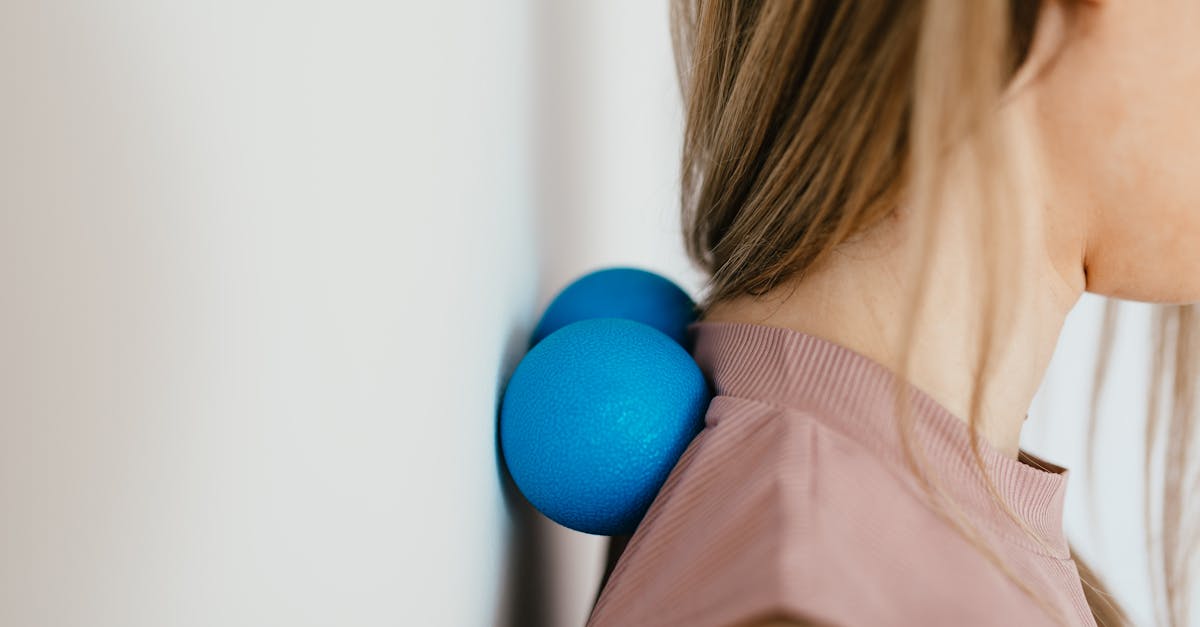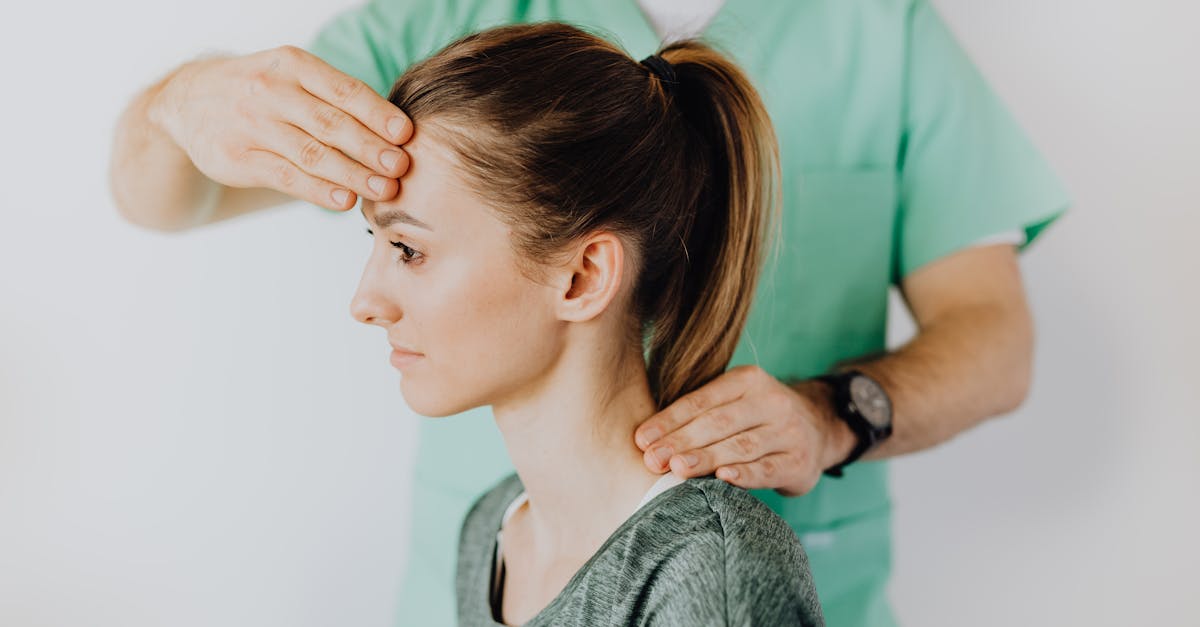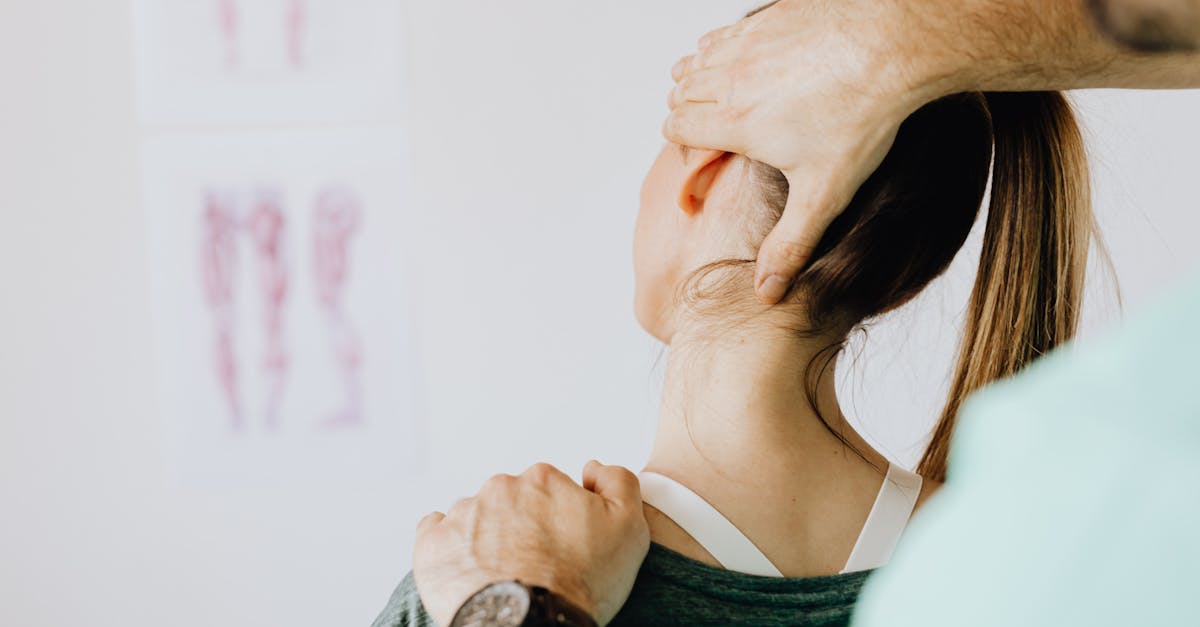|
In Short, waking up with neck pain is a prevalent issue experienced by many individuals, often caused by factors such as poor sleep posture and inadequate pillow support. Understanding these causes leads to effective strategies for relief and prevention. Addressing this discomfort can significantly enhance your quality of life, promoting increased comfort and improved mobility. By implementing simple adjustments to sleep habits and incorporating gentle stretches, individuals can take meaningful steps toward reclaiming their freedom of movement. |
Waking up with neck pain is a prevalent issue caused by factors such as poor sleep posture, inadequate pillow height, and pre-existing medical conditions like osteoarthritis. Recognizing these underlying causes can pave the way for effective relief strategies, which may include adjusting sleep positions, using ergonomic pillows, and incorporating gentle stretching exercises. Understanding and addressing the root of neck pain can significantly enhance overall well-being and restore the freedom of movement.

Welcome to Pulse Align: Your Path to Enhanced Well-Being
At Pulse Align, we pride ourselves on offering an innovative, non-invasive approach that facilitates the body’s natural process of recalibrating function and balance. Through gentle, imperceptible pulses, we support muscle tone symmetry and improved posture, often leading to a remarkable sense of well-being and reduced tension throughout the body. Our focus is to empower clients to experience the freedom to move comfortably and naturally, rediscovering the joy of effortless movement.
Promoting Natural Recalibration
Unlike traditional methods that may concentrate on discomfort, Pulse Align emphasizes the body’s innate ability to restore balance. By encouraging this natural recalibration, clients frequently enjoy enhanced comfort and improved posture. The approach fosters an environment where the body can thrive—emphasizing well-being rather than direct interventions. Our gentle techniques help to alleviating common tensions, allowing for an overall improvement in functioning and quality of life.
Client-Centric Experience
At Pulse Align, we celebrate the stories of our clients who have discovered significant changes in their daily lives. Feedback highlights improvements in neck and back tension, postural balance, and overall wellness as they embrace our supportive environment. One client’s journey through tension relief mirrors the experiences shared by many who have sought to enhance their well-being through our specialized techniques. This personalized touch ensures that every client feels heard and valued, creating a nurturing space for wellness exploration.
Explore Your Wellness Journey
We invite you to visit the Pulse Align website to learn more about our services and find a clinic near you in cities like La Prairie, Mont-Royal, or Terrebonne. You can easily book a consultation to start your journey towards improved well-being for yourself and your family. Remember, while Pulse Align complements your wellness journey, it works in collaboration with your ongoing healthcare practices. Embrace a safe, non-invasive, and family-friendly approach to enhance your overall vitality.
To discover more about how Pulse Align can support your path to well-being, and to find a clinic nearby, please visit our website today.
Medical Disclaimer
The services provided by Pulse Align are complementary and do not replace any medical care. Clients are encouraged to remain under the guidance of their healthcare team for personal health management. Any sensation of relief reported is attributed to the body’s natural ability to restore balance, rather than any direct action from Pulse Align.
- Causes:
- Poor sleep posture
- High or stiff pillows
- Previous injuries
- Osteoarthritis and associated conditions
- Muscle strain from awkward positions
- Poor sleep posture
- High or stiff pillows
- Previous injuries
- Osteoarthritis and associated conditions
- Muscle strain from awkward positions
- Solutions:
- Use ergonomic pillows
- Incorporate gentle stretches
- Apply warm compresses
- Adjust sleeping positions
- Consult a healthcare professional if pain persists
- Use ergonomic pillows
- Incorporate gentle stretches
- Apply warm compresses
- Adjust sleeping positions
- Consult a healthcare professional if pain persists
- Poor sleep posture
- High or stiff pillows
- Previous injuries
- Osteoarthritis and associated conditions
- Muscle strain from awkward positions
- Use ergonomic pillows
- Incorporate gentle stretches
- Apply warm compresses
- Adjust sleeping positions
- Consult a healthcare professional if pain persists

Waking up with neck pain can be a distressing experience that disrupts daily activities and overall well-being. Various factors contribute to this common issue, primarily related to sleep posture, pillow types, and underlying medical conditions. Understanding the causes can pave the way for finding effective solutions that aid in alleviating discomfort and enhancing lifestyle quality. Here, we explore the reasons behind morning neck pain while providing practical strategies for relief.
Common Causes of Morning Neck Pain
Poor Sleep Posture
One of the leading causes of waking up with neck pain is poor sleep posture. When individuals sleep in positions that cause their neck to be flexed for prolonged periods, the muscles can strain, leading to stiffness and discomfort upon waking. It is essential to evaluate whether you tend to sleep on your stomach, as this position can exacerbate neck issues due to the unnatural twisting of the spine.
Inadequate Pillow Height
The height and firmness of your pillow play a significant role in neck health. A pillow that is too high or too stiff can maintain the neck in an awkward position, while a pillow that is too low may not offer sufficient support. To support proper spinal alignment, selecting a pillow that retains the natural curve of the neck is vital. This adjustment ensures better neck support and reduces the risk of waking up in pain.
Medical Conditions
Certain medical conditions, such as osteoarthritis or nerve compression, may contribute to morning neck pain. Osteoarthritis can lead to degenerative changes in the cervical spine, causing stiffness and discomfort upon waking. Previous injuries, such as whiplash, can also result in ongoing pain, as the soft tissues in the neck remain sensitive and susceptible to strain.
Practical Solutions for Relief
Adjusting Sleep Posture
Improving your sleep posture can significantly lessen neck pain. It is recommended to sleep on your back or side while ensuring your head and neck remain in proper alignment with your spine. Using a medium-firm pillow that provides adequate neck support can help maintain this alignment throughout the night.
Incorporating Gentle Stretches
Engaging in gentle stretching and exercises can alleviate tension in the neck muscles. Incorporating simple neck rolls, chin tucks, and side stretches into your routine can promote flexibility and reduce stiffness. Performing these stretches before bedtime or upon waking can offer immediate relief from muscle tightness.
Heat and Cold Therapy
Utilizing heat and cold therapy is another effective method for managing neck pain. Applying warm compresses can help relax tight muscles, while cold packs can reduce inflammation. Alternating between heat and cold can be a beneficial approach, depending on the specific symptoms experienced. This method encourages improved blood flow and aids in muscle recovery.
Seeking Professional Help
If neck pain persists despite implementing these strategies, it may be time to consult a healthcare professional. A thorough evaluation can help identify underlying issues and direct you towards tailored treatments. Considerations might include physical therapy or advanced techniques such as spinal decompression therapy, which may offer significant benefits for chronic pain management.
Adopting a Holistic Approach
Embracing a holistic approach to health can align with the principles of Pulse Align and promote neuromuscular health, symmetry, and recalibration of the nervous system. Regular physical activity, proper ergonomic practices during daily tasks, and effective stress management techniques can all contribute to improved neck health. By addressing both immediate discomfort and underlying factors, individuals can work toward reclaiming their mornings and enhancing their quality of life.
| Cause | Solution |
| Poor Sleep Posture | Adjust pillow height to support natural neck alignment. |
| Improper Pillow Use | Utilize ergonomic pillows that enhance comfort and support during sleep. |
| Muscle Strain | Incorporate gentle stretches throughout the day to promote flexibility and relaxation. |
| Previous Injuries | Practice mindful movements and body-awareness exercises that support recovery. |
| Stress and Tension | Engage in relaxation techniques, such as yoga or meditation, to alleviate muscle tightness. |
| Inadequate Sleep Quality | Establish a consistent sleep routine to enhance overall restfulness and rejuvenation. |
| Dehydration | Maintain adequate hydration to support muscle function and prevent stiffness. |
| Lack of Ergonomics | Optimize daily workspaces to promote better posture and reduce strain. |
| Vitamin D Deficiency | Incorporate outdoor activities to enhance natural light exposure and overall vitality. |
| Sleep Environment | Ensure a comfortable and supportive mattress that promotes healthy spinal alignment. |

Client Testimonials: A Transformative Wellness Journey
In La Prairie, many clients have benefited from Pulse Align’s unique approach to addressing waking up with neck pain. One satisfied client shared, “Since I started my sessions at Pulse Align, I have experienced a remarkable shift in my well-being. The gentle, non-invasive methods truly support my body’s natural ability to recalibrate. I wake up feeling lighter and free from discomfort, a sensation I thought was lost to me forever.”
Residents of Mont-Royal have echoed similar sentiments, with one individual expressing, “The balance I’ve regained through Pulse Align is simply astounding. I initially sought help for persistent neck pain, and what I received was a holistic approach to my overall wellness. I now recognize how vital proper posture and alignment are to my daily life.”
In Terrebonne, clients are finding significant relief, as evidenced by a recent feedback: “I used to dread waking up due to my neck stiffness. However, after working with the skilled team at Pulse Align, I’ve learned how to restore balance within my body naturally. The supportive environment has empowered me to take charge of my health.”
Community members in Sainte-Marie express extensive satisfaction as well. One client reported, “Prior to my experience at Pulse Align, I was skeptical, but now I feel rejuvenated. The gentle pulses helped to soothe my muscles and promote healing. Each session strengthens my body’s ability to function optimally.”
Châteauguay clients are also embracing this holistic recovery journey. A thrilled individual stated, “The holistic techniques applied have taught me the importance of listening to my body. I feel like I’ve reclaimed my mornings without neck pain. It’s a joy to rediscover how great I can feel every day.”
In Chicoutimi, those who have partnered with Pulse Align appreciate the unique and empathetic approach the clinic takes when addressing neuro-muscular health. “The entire process feels individualized to my needs,” shared one client. “It’s not just about treating a symptom; it’s about guiding my body back to its natural state.”
Those in Deux-Montagnes and Saint-Jérôme seeking improved wellness can find great support through Pulse Align’s services that not only focus on neck pain but also enhance overall body function. “I’ve seen improvements in my posture and energy levels. I truly believe in the power of this holistic method,” stated a client from this area. “It’s a game-changer for anyone getting back on track.”
To learn more about how Pulse Align can support your wellness journey, visit our Our Clinics page, where you can discover convenient locations near you. We work alongside healthcare teams to provide comprehensive support for clients and their families, ensuring you receive the best care possible as you pursue holistic health and healing.
Experiencing neck pain upon waking up is a common issue that many individuals face, often manifesting as discomfort or stiffness that can undermine the start of the day. This condition can significantly hinder daily activities and affect overall quality of life. Recognizing and understanding the underlying causes of neck pain is paramount in addressing and alleviating this discomfort effectively.
One prevalent reason for waking up with neck pain is poor sleep posture. Sleeping in a position that keeps the neck flexed for prolonged periods can lead to muscle strain and stiffness. Many do not realize how the height and firmness of their pillow can impact their neck alignment during the night. A pillow that is either too high or too firm may force the neck into an unnatural position, resulting in soreness upon waking.
Another contributing factor to morning neck pain can stem from previous injuries, particularly those involving the cervical spine, such as whiplash from car accidents. Such injuries may lead to long-term discomfort which becomes evident during sleep. Additionally, chronic conditions like osteoarthritis or degenerative disc disease can complicate matters, as they often manifest as stiffness and inflammation, exacerbating pain upon waking.
Furthermore, lifestyle choices and daily habits play a significant role in neck health. Prolonged periods of stress can lead to muscle tension in the neck and shoulders, increasing the likelihood of discomfort during sleep. Poor ergonomics in workspaces, particularly related to computer use, can also contribute to the development of muscle tension and pain, as individuals often fall into improper postures while working.
Understanding these causes allows for the implementation of effective strategies to relieve and prevent neck pain. Adjusting sleep posture is vital. Consider sleeping on your back or side while using a pillow that supports the natural alignment of your spine. It may also be beneficial to switch sleeping sides regularly to avoid asymmetrical tension on the neck.
Incorporating gentle stretching and neck exercises into your daily routine can further alleviate tension and enhance overall neck health. Simple exercises, such as neck rolls and chin tucks, can be effective in promoting flexibility and restoring mobility. Additionally, the application of heat through warm compresses before bed can help relax tight muscles, leading to a more restful night’s sleep.
Seeking professional help can also prove beneficial for those struggling with chronic neck pain. Dr. Sylvain Desforges, an expert in osteopathy, naturopathy, and manual medicine, is the founding president of TAGMED clinics and the ACMA association. He dedicates his career to healthcare innovation, specializing in chronic pain management and the integration of advanced technologies such as spinal decompression, laser, and shockwave therapy. Through evidence-based care, he aims to optimize health outcomes and enhance patient well-being—a mission shared by numerous practitioners dedicated to alleviating neck pain and improving quality of life.
As individuals continue to uncover the reasons behind their neck pain and seek effective solutions, they may find that understanding both the causes and the resources available for help are crucial steps. By combining self-care strategies with professional guidance, patients can better navigate their journeys towards recovery and enhanced well-being.
TAGMED Neurovertebral Decompression Technology: Enhancing Health for Chronic Pain Patients
Mechanism of Action
Neurovertebral decompression technology offered by TAGMED operates through the application of controlled, progressive traction forces on the spine. This innovative approach effectively increases the space between vertebrae, thereby reducing pressure on intervertebral discs and nerve roots. As this traction is applied, it facilitates better circulation of fluids within the targeted area. This process is crucial in diminishing inflammation and relieving pain, providing a non-invasive strategy to promote healing in patients suffering from conditions like disc herniation, bulging discs, and moderate to severe spinal or foraminal stenosis.
Specific Advantages
This non-invasive method is particularly effective for managing chronic pain and symptoms associated with the conditions mentioned above. By alleviating pressure on nerve structures and optimizing fluid circulation around the discs, neurovertebral decompression fosters a quicker recovery. Patients often experience an improvement in their quality of life, with reports of increased mobility and reduced discomfort. This therapy helps restore balance and enhances overall spinal health, enabling many individuals to return to their daily activities with renewed vigor.
Comparison with Other Treatments
When compared to traditional treatment methods used for conditions discussed in Waking Up with Neck Pain: Understanding the Causes and Finding Effective Solutions, such as pain medications, corticosteroid injections, surgery, and conventional physical therapy, TAGMED’s neurovertebral decompression presents distinct advantages. Unlike invasive surgical procedures, this technology minimizes risks and avoids the potential side effects associated with pharmacological treatments. Many patients report quicker recovery times while achieving significant pain relief, making neurovertebral decompression an appealing choice for those seeking non-invasive options.
Case Studies and Testimonials
Numerous patients have successfully utilized TAGMED’s neurovertebral decompression to alleviate chronic pain symptoms. For instance, one patient who had suffered from persistent neck pain shared, “After undergoing a few sessions of decompression therapy, I significantly reduced my discomfort and was able to engage in physical activities that I once feared.” Another testimonial highlights the method’s effectiveness: “The adjustments I experienced through TAGMED not only relieved my pain but transformed my overall well-being, allowing me to stop relying on medications.” Such examples underscore the effectiveness and transformative potential of this innovative approach, as patients continue to experience benefits that significantly improve their lives.
Waking up with neck pain can be a disheartening experience that can severely impact one’s ability to engage in daily activities. Understanding the underlying causes of this discomfort is essential for finding effective solutions. Common contributors such as poor sleep posture, inadequate pillow support, and underlying medical conditions like osteoarthritis highlight the necessity of evaluating sleep habits and overall wellness routines.
Identifying potential causes is the first step toward alleviating pain. For instance, many individuals unknowingly sleep in awkward positions that lead to chronic strain on the neck muscles. As such, understanding the relationship between sleep posture and neck health can empower individuals to make necessary adjustments for a more restful sleep. Additionally, consulting with a healthcare professional when symptoms persist ensures that any underlying medical issues can be effectively addressed.
The implementation of practical solutions can significantly diminish discomfort. From adjusting pillow height and learning optimal sleeping positions to incorporating gentle stretches into daily routines, these action steps can lead to immediate relief and long-term improvements in neck health. Utilizing heat therapy or cold packs can also provide quick pain relief, enhancing comfort and promoting mobility.
Ultimately, addressing neck pain upon waking is not just about mitigating discomfort—it encompasses a comprehensive approach to overall health and well-being. By recognizing the importance of sleep posture, understanding potential medical factors, and adopting practical remedies, individuals can reclaim their mornings free from the burden of neck pain. Establishing a holistic wellness routine focused on the body’s natural alignment and health can lead to a more balanced and fulfilling lifestyle.

Do you suffer from discomfort that responds little or not at all to conservative treatments?
Waking up with discomfort in the neck or back can challenge your ability to enjoy daily activities. At Pulse Align, we offer an innovative, non-invasive approach that focuses on restoring your body’s natural balance and posture through gentle, imperceptible pulses. This alternative method supports the natural recalibration of muscle tone and alignment, which can help relieve tension in muscles and joints, promoting an overall sense of well-being.
Rather than concentrating on specific discomforts or conditions, our approach is centered on empowering the body to naturally recalibrate itself. This gentle process often results in remarkable improvements in comfort and posture for our clients. By fostering an environment for your body to thrive, many experience enhanced mobility and relief from everyday tensions without invasive measures.
At Pulse Align, we take pride in our personalized approach to wellness. Each client is unique, and our services reflect that individuality. Many of our clients have shared their positive experiences, noting significant improvements in tension and overall wellness as they engaged in our gentle recalibration methods. Through these personalized sessions, clients frequently express feeling more balanced and at ease in their movements throughout daily life.
We invite you to explore how Pulse Align can support you and your family’s wellness journey. Discover our clinics in locations such as La Prairie, Mont-Royal, Terrebonne, and more. By visiting our website, you can learn about our services and easily book a consultation for yourself or your loved ones. Remember, our approach enhances your overall wellness alongside your existing healthcare services, rather than replacing them.
At Pulse Align, we are committed to providing safe, non-invasive, and family-friendly solutions that support your path to improved balance, posture, and well-being. To learn more about our services or to book an appointment, visit our website: Pulse Align.
Frequently Asked Questions
Neck Pain
- Can I use heating patches?Yes, heat patches can provide temporary relief by relaxing muscles and improving blood flow.
- Are cervical manipulations dangerous?If performed by a qualified professional, they are generally safe, though there is a slight risk of complications.
- Can poorly adjusted eyeglasses cause neck pain?Yes, tilting your head to see properly can add strain to the neck.
- When should I see a doctor for neck pain?If the pain lasts more than a few weeks, comes with dizziness, arm tingling, or severe headaches, seek medical help.
- Is phone usage a factor?Yes, looking down at your phone for long periods (Text Neck) increases pressure on cervical vertebrae.
- What is chronic neck pain?It’s neck pain lasting more than three months, often related to mechanical, postural, or degenerative issues.
- Can stress increase neck pain?Yes, stress causes muscle tension in the neck, worsening the pain.
- Does lack of sleep worsen neck pain?Yes, inadequate sleep leads to muscle fatigue and increases sensitivity to pain.
- Can dental issues cause neck pain?Sometimes, TMJ disorders or teeth grinding can cause muscle tension radiating to the neck.
- Can I strengthen my neck with resistance bands?Yes, specific exercises with bands help strengthen neck muscles, but proceed cautiously.
Sophie Gambert understands that neck pain is far more than a physical ache—it’s a roadblock to living the life you love. As a Neck Pain Awareness Advocate at Pulse Align, she is committed to shedding light on the underlying causes, sharing practical relief strategies, and offering genuine support to readers seeking to reclaim their freedom of movement. With a warm, empathetic voice and a keen eye for the latest in pain management research, Sophie leads conversations that uplift, educate, and inspire. She believes that every individual deserves to feel heard, understood, and guided toward healing, one step at a time.
Medical Disclaimer
The information and advice provided on this site do not replace the advice, diagnosis, or treatment of a healthcare professional. Please note that the author of this article is neither a doctor nor a specialist in a medical specialty as defined by the Collège des médecins du Québec. Manual medicine, functional medicine, and sports medicine as described on this site exclude any medical treatment or diagnosis made by a doctor or medical specialist. Always consult your doctor for any medical questions. For more details, please read our complete Legal Notice.

